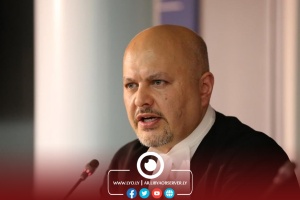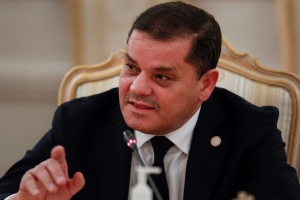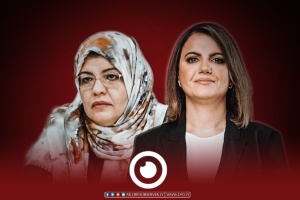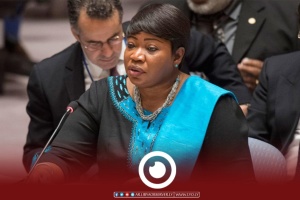By Emadeddin Zahri Muntasser, an author and political analyst
ICC Ex-Prosecutor Was On War Crimes’ Suspect Payroll
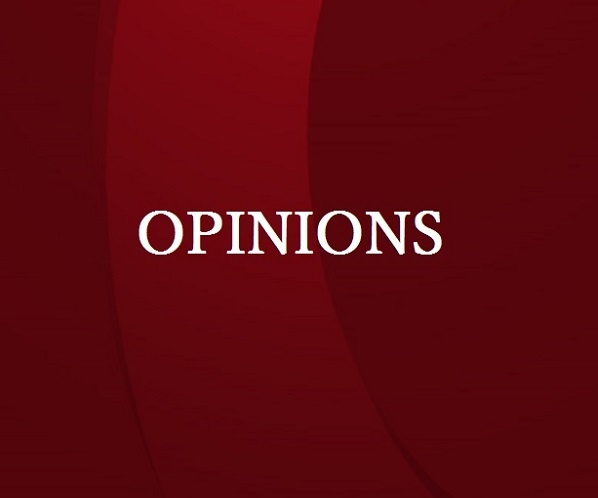
Two years ago, the credibility of the United Nations in Libya was seriously damaged when it was revealed that Bernardino León, the chosen UN Envoy, was literally on the payroll of a country with economic and military interests in Libya.
So when León proposed plans that favored the policies of the country that was signing his paychecks, suspicions were appropriate. And although León was eventually replaced as Envoy, the stink of corruption lingered around the UN in Libya – which matters because the UN continues to play an integral role in how, when and with whom peace will be restored there. If there are questions about the UN’s motives, whatever government emerges may lack in domestic as well as international support.
It’s against that unpleasant recent history that another and potentially more troubling conflict-of-interest scandal may be about to break open for an UN-related institution involved in Libya.
News outlets in Europe are reporting on a leak of documents that they say show Luis Moreno Ocampo who used to travel on an UN-issued passport and was the former lead prosecutor of the International Criminal Court (ICC), was also taking money from partisan players in Libya who were possibly involved in aiding and abetting war criminals.
That’s important because the ICC is uniquely and specifically involved in Libya, where it’s seeking to bring some outlaw military leaders to justice for human rights violations and war crimes.
Just last month, the ICC issued a request for the arrest of Libyan military commander Mahmoud al-Werfalli who the ICC believes, “committed murder as a war crime for allegedly directly participating in seven incidents in which 33 individuals were killed.” Al-Werfalli works for a well-known Libyan warlord Khalifa Haftar who, other evidence shows, has ordered those crimes as well as committed several of his own. It seems a smart wager that the ICC (or the US) will pursue charges against Haftar as well.
According to the new reporting, Ocampo, the former ICC head prosecutor, accepted funds and jobs from a number of people and stashed his proceeds in unusual overseas accounts. One of those jobs and payment sources includes a 2015 arrangement with, “…billionaire Libyan oil magnate and TV media owner Hassan Tatanaki…on a three-year contract worth a million dollars a year, plus a daily wage of 5,000 dollars.” Tatanaki is a well-known supporter of Haftar, the warlord, and his Libyan National Army and has called Haftar his “partner.”
The details of the new reporting and the leaks are disturbing.
Within weeks of setting up the Ocampo and Tatanaki contract, a Haftar commander went on one of Tatanaki’s TV stations, to say he will kill anyone who does not join his military offensive and that, ‘those people are traitors who have to be slaughtered, and their wives must be raped before their eyes.’
Further reporting includes that, when he learned about the Air Force commander’s comments, former prosecutor Ocampo e-mailed the assistant of his new boss, Tatanaki, and said, “We need now a strategy to isolate Hassan [Tatanaki]” from the comments.
And, according to the reported e-mail exchanges, Ocampo and Tatanaki’s assistant tried to iron out strategies to ensure that his new boss and the armies he supported would not come under the suspicion of the ICC – the UN organization he used to run. “I would suggest to develop a comprehensive plan to ensure that Hassan [Tatanaki] and the forces he is supporting are not the target of ICC prosecutions,” Ocampo allegedly wrote. Ocampo went on to suggest that his new boss not financially support the warlord Haftar or his Libyan National Army as this may subject him to criminal liability in the future.
Those comprehensive plans and Ocampo’s advice on how to avoid becoming a prosecution target may not have worked out so well since the very forces Ocampo suggests helping to skirt ICC targeting are the very same forces that were targets of the ICC.
Taken together, writing about a plan to avoid being targeted by the ICC and making suggestions on how to avoid being prosecuted for war crimes certainly makes it appear as though Ocampo was at least aware that war crimes were being committed and that his new boss could be implicated. That’s not a good look for a former war crimes prosecutor.
Ocampo denies that his engagement with Tatanaki had anything to do with the ICC and its former or ongoing activities. In the reporting, he says he never contacted the ICC about his client or that client’s entanglements in Libya. According to the Times of London, however, “The former chief prosecutor also arranged for one of the court’s most senior press officers to work for Tatanaki secretly.”
Boiled down, the former head of the UN ICC scored a highly lucrative business deal with a supporter of the criminals the ICC is investigating – and called to arrest – for war crimes. And that former war crimes prosecutor advised his new boss on avoiding prosecution for what was happening in Libya.
At worst, it’s outright corruption that has compromised the ICC and their actions in Libya. At best, if nothing illegal or inappropriate was done, it’s yet another perception problem for the UN at a time and in a place already rife with it.
Candidly, though, it’s probably better for everyone if these new revelations uncover blatant corruption because corruption can be proven and prosecuted. Bad apples can be taken out of the barrel. A clear-cut pay-for-favorable treatment scandal would end and the UN and the people and players in Libya would move ahead.
But another blow to the UN’s reputation in Libya – one that simply raises questions and provides no answers – could be disastrous because the most valuable commodity in Libya these days is credibility.
Given the scandal with Envoy León, it’s not clear how much credibility the UN and the ICC have. But it is exceptionally clear that the UN can’t afford to lose any.
Disclaimer: The views and opinions expressed in this article are those of the writer, and do not necessarily reflect those of the Libya Observer



